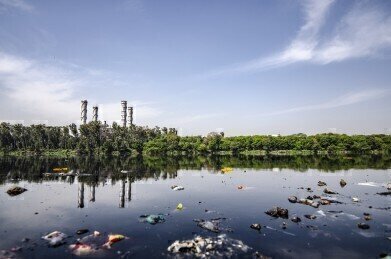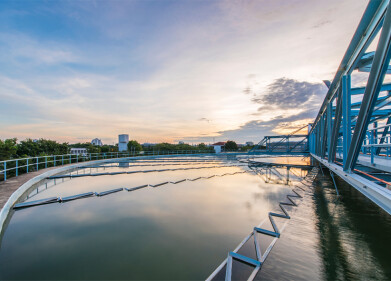Water/Wastewater
How Does Water Pollution Affect Economic Growth?
Nov 03 2019
The detrimental effect of water pollution on the flora and fauna which live in river and marine habitats is well-documented. Even the deleterious impacts that such contamination can have on human health further up the food chain have been investigated to a strong degree. But aside from the environmental cost of water pollution, what do we know about the economic one?
Quite a lot, thanks to a new report from the World Bank. Using the largest ever database collated on water quality, the authors of the study found that economic growth could be damaged by water pollution by as much as a third in certain countries, owing to factors such as increased healthcare spending and reduced agricultural yields, alongside the fiscal side of ecosystem damage.
Ground-breaking study, Earth-shattering results
Using the data collected by innovative online water quality monitoring systems, satellite imaging equipment and sophisticated computer modelling software, the World Bank researchers were able to amass the largest bank of information on global water quality in existence. To reach their conclusions, they relied on a metric known as Biological Oxygen Demand, which measures organic pollution levels in water samples.
They found that once the contamination reached a limit of 8mg per litre of water, those people living in the regions downstream from the polluted water saw their GDP fall by 0.83%. Given that the mean GDP growth rate stands at 2.33%, that’s approximately a 33% drop-off in earning capabilities of those affected. The fall can be attributed to the deteriorating health and accompanying reduced earning potential of children exposed to the contamination.
The biggest contributing factor to that effect is the use of fertiliser (specifically nitrogen) to maximise crop yields. But while spraying fields with the chemical can boost yields by as much as 5% for each kilo of fertiliser used, childhood stunting can increase by almost a fifth (19%), damaging both the health and brain faculties of the kids in question. Then, when they become adults, their earning potential can fall by as much as 2% compared to those unaffected by the contamination.
Agriculture also at risk
Meanwhile, the delicate nature of the agriculture-water interface means that the pollution isn’t necessarily a good thing for crop yields, after all. Intensive working of the land through pressures like irrigation, leaching of fertiliser into unwanted areas and improper treatment and disposal of urban wastewater can increase the salinity of the land, which adversely impacts how much food can be grown upon it.
According to the World Bank’s report, the amount of food that is lost to overly saline water as a result of manmade activity is equivalent to that which would feed 170 million people. For context, that figure is around three times the size of England, or roughly the same as the population of Bangladesh, the eighth most populous country on the planet.
“Clean water is a key factor for economic growth,” explained David Malpass, President of the company behind the report. “Deteriorating water quality is stalling economic growth, worsening health conditions, reducing food production, and exacerbating poverty in many countries.” Alongside their research, the authors also published recommendations on how best individual governments and collective organisations can work together to alleviate the problem.
Digital Edition
IET 34.2 March 2024
March 2024
Gas Detection - Biogas batch fermentation system for laboratory use with automatic gas analysis in real time Water/Wastewater - Upcycling sensors for sustainable nature management - Prist...
View all digital editions
Events
Apr 17 2024 Guadalajara, Nexico
Apr 18 2024 Shanghai, China
Apr 22 2024 Hannover, Germany
Apr 22 2024 Marrakech, Morroco
Apr 23 2024 Kuala Lumpur, Malaysia


















